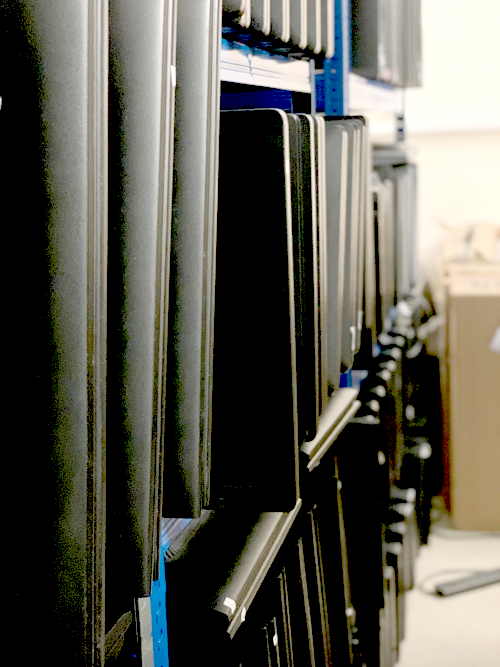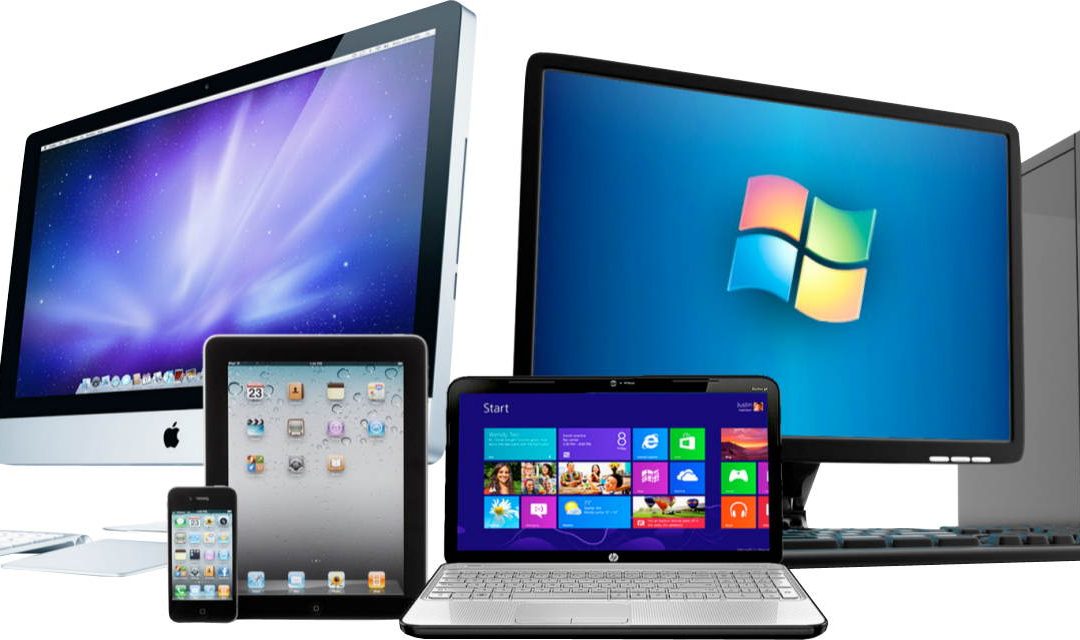Our newest Circularity Champion is Nick Rawkins, the CEO and founder of RECONO.ME. Nick and his team are drastically improving the way in which we consume electronics by refurbishing, upgrading and reselling valuable pieces of technology. He is a former bond trader and a self-professed Sci-Fi lover. We took the opportunity to pick his considerable brains on all things Circular Economy, ‘controversial’ sustainability practices in the electronics industry and found out his favourite piece of tech…
Describe RECONO.ME in 20 words or less.
RECONO.ME gives a productive second life to useful and valuable tech hardware that would otherwise go to waste.
How did RECONO.ME begin?
I was feeling restless in my previous career—I was a trader at a bank. I felt my role there was becoming obsolete as algorithmic trading was gradually taking over, and my energy spent there was doing little to solve any of today’s pressing issues.
I was thinking a lot about recycling and waste, and it bothered me that so much of what we consume is sold as “disposable” when in fact we face a tremendous waste issue. The era of take, make, waste is dated and unsustainable. There is a growing consensus that the circular economy is where we should be going. Today’s companies need help to make the shift, and my ambition for RECONO.ME is to be on the cutting edge of this transition.

Favourite piece of tech?
I love my Grado SR125s – I’m no audiophile but I like that this is an industry where newest isn’t best; just think of the revival of the vinyl industry, and many aficionados scour the earth in search of lost analogue systems from the 70s. Grados are hand-made by the Grado family based in Brooklyn, NY.
In our warehouse, Andrei, our lead engineer, swears by his fluke 289 multimeter. It is an extremely accurate voltage and frequency reader that he uses to test and solve any circuitry issues encountered on hardware we’re handling.
There are lots of shocking images of electronic waste being treated in landfill in the developing world. Do you recycle everything? If not, how do you make sure that it is disposed of safely?
Yes we recycle everything that we cannot repair ourselves or reuse for parts. One of our team members, Michele, is in charge of incorporating sustainability into every part of our operations. We work with a carefully selected group of accredited recyclers to whom we entrust the extraction of valuable materials from our waste electronics—the process is done within the UK.
Tech companies have been accused of designing obsolescence into their products to drive sales. Do you see this in action? Is it possible to restore electronics to as-new when products have not been designed to last?
We witness many controversial practices in the industry, ranging from hardware with hardcoded limits on functionality, forced software upgrades, manufacturing that relies on raw materials sourced in sensitive areas, poor product design that makes recycling difficult and so forth.
As a company betting on the market for renewed tech, we are keen to supply products that keep their value and desirability the longest. RECONO.ME’s position gives us access to a deep inventory of parts to source from, and most often there is an active spare parts market where we can source components that take the brunt of wear and tear. I see it as our purpose to promote equipment that is built to high standards, that is why I always say we extend the life of useful and valuable equipment—it is equally our mandate to retire equipment that has no future role to play.

How do you keep up with the pace of development in the tech world when the threshold for what is ‘cutting edge’ advances so quickly?
I’d argue that a lot of the recent developments are in AI, machine learning, and blockchain, where economies of scale are required to generate the necessary computing power, meaning the demand on single devices is actually lessening. Virtual computing has also become commonplace. All the computing power we need can be accessed with a decent internet connection.
Interestingly, we’ve nearly reached the limits of transistor density on chips. The electronics industry, very much like the fashion industry, creates this sense of desire to want the newest and the best, but the functionality that the average person needs is far exceeded by what is on offer, and therein lies the opportunity for refurbished tech.
We work closely with companies to deeply understand how they used the tech hardware we inherit. Our engineers are well versed in a wide range of applications and are really talented at getting hardware to perform again at its best.
What advice would you give to someone planning to start a sustainable business?
The idea of a purpose-driven commercial enterprise really appeals to me—it is difficult to achieve impact without sustainable revenues, customers and suppliers. Collaboration is another fantastic way of increasing your reach in a friendly way: form ties with academics in similar fields; reach out to companies to form partnerships.
Which person or business has had the biggest impact on your sustainability thinking?
Like many others out there, I took a huge amount of inspiration from Michael Braungart and William McDonough. Aesthetics are great, but truly great design thinks about all the ways in which we use something, from what materials and processes we use to how long it remains useful and what happens to it at end-of-life. What has now become the traditional model of take-make-waste means many companies have little idea of what is happening to their products once they are sold.
If you could hire anyone in the world to join Recono.me who would you hire (salary expectations and availability are no object)?
I’m currently reading “Trillion Dollar Coach”, about Bill Campbell who was revered in Silicon Valley. I’ve always felt when in effective teams, we as individuals are capable of so much more, and no one preached this more than Bill. He worked with some of the greatest minds in the valley and got them to put the team and company purpose first, leaving egos behind, and though tough but deep love and respect, got these people to achieve their absolute best.
If you were in charge of the UK, what would you do for the environment?
The market on its own does a poor job of evaluating externalities, especially those with longer term consequences. I would mandate agencies like the EA and Defra to work with research institutions to help businesses that operate in the UK transition to less/non-polluting alternatives. In line with the UK’s goal for net-zero carbon emissions by 2050, the worst polluting industries that commit to and show progress against an aggressive timeline for emissions reductions will be offered tax incentives and those that don’t will be penalised.
I would look at areas where we can champion UK technology abroad – for example Recycling Technologies offers a great solution for cleaning up low-grade plastic waste which would be effective in areas where plastic pollution is far worse than in the UK.
When are you happiest?
When I have time for “blue sky thinking” where fantasy becomes reality and I can visualise all the great things that I’d like in a future world. I can then work back from there and see what might actually be doable if I started work today.
Editor note: Rype Office is partnered with RECONO.ME to integrate high quality remanufactured electrical items into its sustainable office products, including cabling, monitors, computers and audio-visual equipment.

